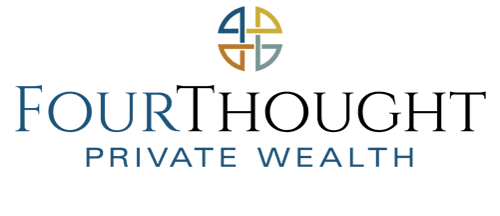To be a great investor you must think in terms of probabilities. Do not attempt to predict the future.
Pundits predict, and when they fail, they say, “Well, that is because XYZ happened and who could have predicted XYZ?” The problem is that their punditry costs you money or opportunity. Instead, think probabilistically.
Our recent piece “Wait Until You See the Whites of Their Eyes” discusses several of the “wolves” we are tracking in the COVID and post-election era. Some have a high probability of showing their fangs. Others, not so much.
Over the last two weeks we have not only had the election but also reams of economic data. It appears that some risks have decreased while others have increased. Some we fear may boomerang.
Below are five of the “wolves” in the woods we have been watching. Some of them are still fierce and should be feared. Others are demonstrating that their bark is worse than their bite.
- Earnings have turned out to be surprisingly friendly. Many companies have shattered expectations, and it looks like we are seeing a “V” shaped recovery.
- Stimulus is still out there and has a dangerous side.
Before the election, interest on the 10-year treasury had risen over 10% (from .60 to close to .90). Rates were climbing because of the concern surrounding another, potentially huge stimulus package. After the election and the reduction of the “blue wave” probability, interest rates came back down. The tug of war continues; many people think that stimulus is good, but the bond market vigilantes disagree. Like America, the bond market has voted and concluded like so many other things in life there “Ain’t No Free, ”as the song by the same name goes.
If we keep spending, then we will have to pay with higher interest rates. Higher rates, with the level of outstanding debt we currently have, are very dangerous. So many of our jobs and so much of our wealth is tied to home ownership.
- Reversion to the mean is something we know and expect.
One of the tried and true axioms of investing is that eventually everything reverts to the mean. For example, for more than 70 years American homes appreciated in price approximately five percent per year. Then suddenly, in the early 2000s, prices started to climb at a rate greater than 20 percent per year. When prices collapsed during the 2008 global financial crisis they reverted back to the mean.
Today we see a very narrow part of the market, large tech companies, substantially outperforming the market. People who have bet against them have dramatically underperformed. In our view, reversion is a truth that should not be ignored. We think the leadership in the market will shift as our economy recovers.
- We cannot let down our guard on prices.
There will be euphoria when COVID-19 vaccines begin distribution. There will be enthusiasm when people feel they can get back to normal. Whenever you go through a period of chaos and you land on your feet, you get your bearings and figure out where you are. When that happens in our economy, people might realize that we are trapped in a slow growth world with very high valuations.
- Bond prices and returns may have a nasty bite.
We advise against the cookie cutter approach to investing. While there are principles to which we always adhere, what is good for one investor is not good for all. For example, most have heard the old advice that what you own bonds should be equal to your age. However, we predict that the long-term bull market for bonds is over.
When I started my career in 1987, a 30 year mortgage had a 10.65% interest rate; today it is at 2.83%. Bond prices and interest rates are like a teeter totter. Interest rates go down, bond prices go up. Long-term data shows that bond prices offer a certain return and a certain level of stability based on the long-term inputs. But what if your long-term data is drawn from a single sample during a long period of declining interest rates?
The bottom line is that we recommend minimizing your bond exposure now. Keep your durations short and your quality high. We can find income through other sources like high- quality dividend stocks and real estate.
We believe in big bad wolves. They are out there, and we must remain diligently on guard. At FourThought we view the wolf with the scariest teeth as the debt wolf. What we do not want to see is interest rates creep higher while the economy sputters. That is where Japan has found itself, and no amount of government intervention has helped.

